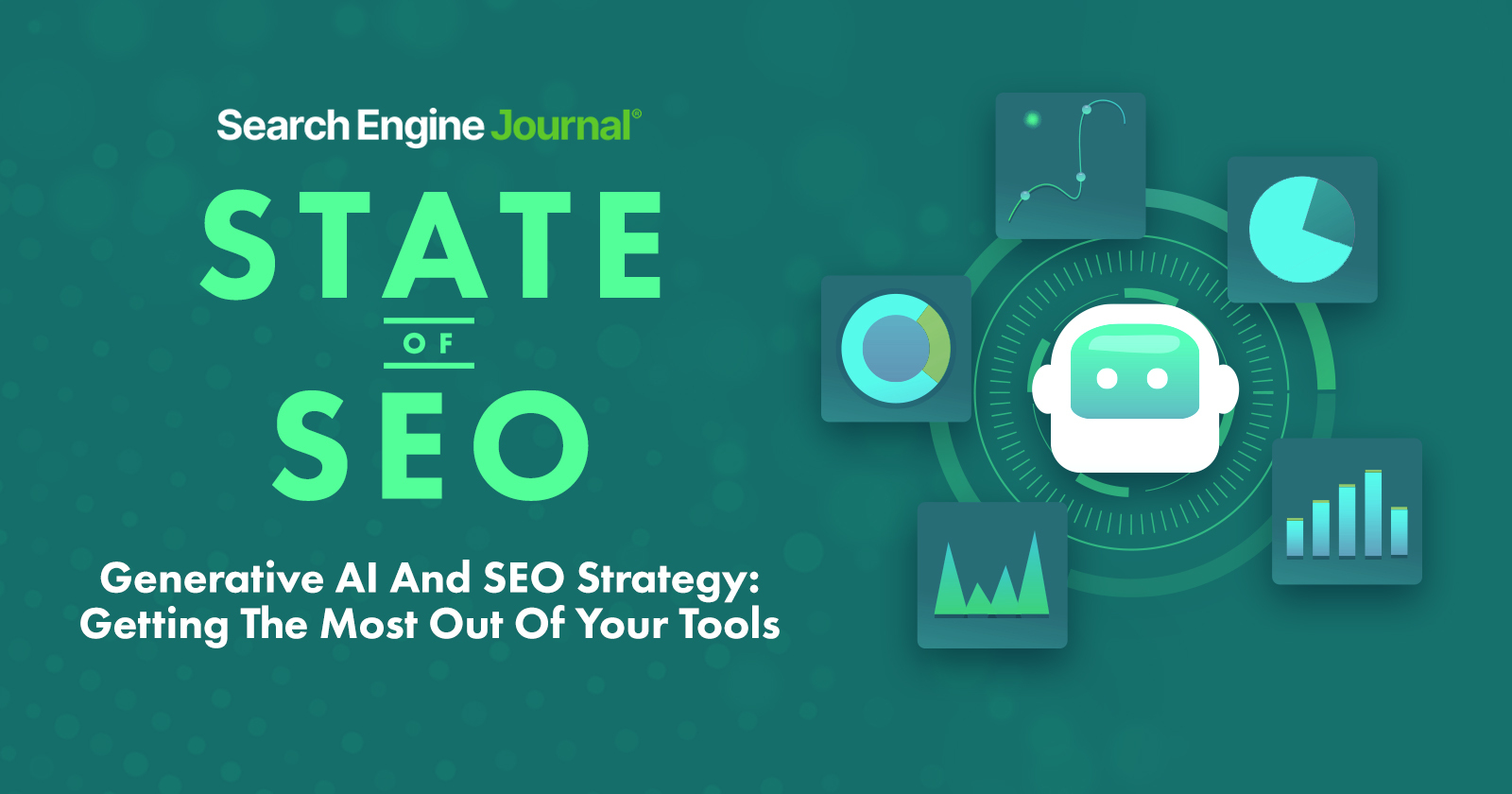Our new State Of SEO report provides insights into how SEO professionals are reacting to the rise of generative AI tools capable of producing written content.
The report surveyed SEO experts to gauge their outlook on how emerging generative AI technologies could impact their strategies now and in the coming years.
While views differ on the potential effects, the survey found that most SEO professionals believe generative AI will have at least some impact – but also presents opportunities.
The report analyzes attitudes based on experience level and team size. It looks at which SEO tasks survey respondents are most interested in automating with AI.
Additionally, this article explores possible risks and limitations that should be considered regarding over-reliance on generative AI tools for content creation.
Finally, we make predictions for how SEO strategies may need to evolve as AI-generated content becomes more prevalent in the future.
The Impact Of Generative AI On SEO Strategies
There are differing views on how generative AI will impact search engine optimization (SEO).
Some believe it signals the end of SEO as we know it, while others think it will transform SEO.
According to our survey, most (81.5%) SEO professionals report that generative AI has already had some effect on their SEO strategy.
The report shows that executives are the most concerned about the impact of generative AI on their SEO strategies, with 37% predicting a significant impact.
In contrast, freelancers (23.5%) and business owners/operators (24%) are more confident that generative AI won’t require them to change their SEO approach substantially.
Attitudes Toward AI’s Potential Impact
The survey found an optimistic view toward AI’s potential impact, with 72.4% of respondents anticipating it to have positive benefits.
SEO professionals with 5 to 10 years of experience were the most positive, with 77.3% having a favorable outlook on generative AI.
In comparison, industry experts with more than 20 years of experience were the most worried, with 27.9% total voicing concerns and 13.2% believing it could be very harmful.
Automation & AI In SEO Practices
A sizeable percentage (68%) of SEO experts intend to implement automated processes using AI tools.
Larger SEO organizations show greater interest in using automation, with the adoption of AI solutions rising as the number of employees on SEO teams grows.
The survey found that the tasks most people want to automate using AI are as follows:
- Getting the most out of generative AI (13.3%).
- Creating content (11.1%).
- Analyzing content (10.7%).
- Managing structured data (7.5%).
This indicates that generative AI has the potential to significantly improve efficiency and allow teams to concentrate on the most critical tasks.
Opportunities For SEO Service Providers
The report points out two main opportunities for SEO service providers that are not mutually exclusive:
- Adopting generative AI and AI tools.
- Combining automation with personalization.
Companies offering SEO tools and software could benefit from meeting these needs.
Priorities For Directors & Higher Management
Executives and senior managers have particular priorities when it comes to automating tasks.
Their top priorities are using generative AI (13.6%), auditing content (8%), auditing SEO (8%), and managing schema and structured data (6.7%).
Content generation is the fifth most important priority.
Since executives and senior managers have significant purchasing power, they will likely drive adoption in these areas.
Automation Preferences Based On Team Size
Teams of varying sizes naturally have different priorities.
Medium-sized teams of 11 to 100 people tend to have similar preferences for automation, while small and large teams have different needs.
Small SEO teams with under 10 people focus more on content audits and backlink analysis as their top priorities. In contrast, individual SEO practitioners rank generative AI and analytics higher.
Fewer than half of the solo SEO respondents intend to start using generative AI in their work over the next year.
The trend of businesses striving to adopt AI solutions may be due to insufficient resources or a desire to differentiate themselves.
Smaller companies could benefit from carefully implementing AI to improve operational effectiveness, freeing them to concentrate more on long-term strategy and innovation.
In contrast, bigger teams show more excitement and willingness to use generative AI. These larger teams are well-positioned to adopt new technology, try innovative services, and address workflow problems.
Risks, Limitations, & Ethical Considerations Of Generative AI In SEO
Generative AI has great potential to improve SEO, but we must be careful not to depend on it too much.
As exciting as the technology is, it’s crucial to thoroughly understand its risks, limits, and ethical problems.
Rushing into generative AI without enough thought could lead to issues down the road.
The Limitations Of Generative AI
Though generative AI has made big strides, it still makes mistakes. It can create content that doesn’t make sense, doesn’t match the context, or needs to be corrected.
AI can process tons of data but can’t think critically like humans. This means the content it generates, while SEO-friendly, might not give value to readers or reflect your brand.
The Risks Of Over-Reliance
Relying too much on AI could make online content less creative and unique.
Over-reliance may lead to all websites sounding the same and less human. This could make content less intriguing and reduce audience engagement.
Additionally, generative AI could negatively impact a brand’s authenticity if the content sounds robotic or formulaic instead of reflecting the brand’s distinct personality.
Search engines constantly change their systems to promote good, original content and limit low-quality or fake content.
That means depending on AI too much to create content could lead to penalties if the content seems low-quality or deceptive.
Charting The Future: How SEO Strategies May Evolve
As AI gets better at generating content, SEO strategies will need to change.
Here are some forward-looking insights on how SEO might change in the coming years.
Balancing Automation & Personalization
AI will likely take over more routine writing tasks as it gets better at generating content.
However, keeping humans involved in the content creation process is essential.
AI can churn out text, but people are needed to make sure it connects with readers and represents the brand.
SEO professionals must find the right balance between using AI capabilities and adding a personal touch.
The Rise Of Voice Search & AI’s Role
As more people use AI assistants like Google Bard and Bing Chat, voice search could become more popular.
As a result, SEO strategies may change to accommodate a shift toward voice search.
AI tools that generate conversational text can help optimize content for voice search.
This is done by anticipating questions people may ask and using words people would naturally say when talking.
AI-Powered Predictive Analysis
Generative AI and machine learning models can process vast data to identify patterns and predict future trends and user actions.
SEO strategies will likely evolve to leverage more data-driven insights to optimize content and improve rankings.
Hyper-Personalized Content
AI can create customized content for users based on their interests and actions online.
As AI improves, search engines may evolve by generating more personalized search engine results pages (SERPs).
This could improve the user’s experience and keep them more engaged. On the other hand, SEO experts will need to adapt their content strategies to stay on top.
In Conclusion
The State Of SEO report provides valuable insights into how SEO professionals view the impact of generative AI.
Executives prioritize leveraging AI for content auditing and managing structured data. Small teams are more focused on content audits and backlink analysis.
As generative AI advances, SEO strategies will likely shift to incorporate more predictive analytics, personalized content, and optimization for voice search.
However, human oversight and creativity remain essential to produce high-quality content that resonates.
The future of SEO requires balancing the capabilities of AI with the personal touch of human experts.
Featured Image: Paulo Bobita/Search Engine Journal




